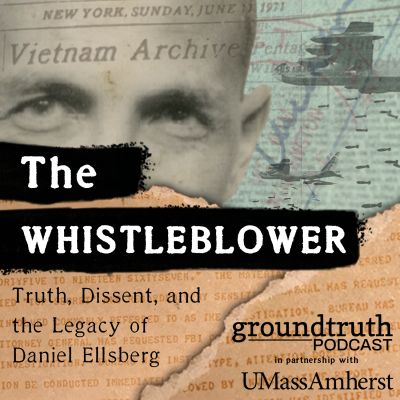At the height of the Vietnam War, a government insider named Daniel Ellsberg leaked 7,000 pages of classified documents to American newspapers. The Pentagon Papers revealed that Americans had been lied to for decades about the war. Fifty years later, Ellsberg reveals his evolution from Cold Warrior to Whistleblower in the GroundTruth Podcast series The Whistleblower: Truth, Dissent and the Legacy of Daniel Ellsberg. Based at GBH in Boston, the award-winning GroundTruth Podcast has covered global affairs from the War in Afghanistan to rising populist nationalism through shoe-leather, on-the-ground reporting.
http://thegroundtruthproject.org/
episode 2: New American Songbook: For My Ayeeyo
Somalia is often called a land of poets, a place where everything from teenage romance to legal disputes has been recorded and passed down through poems. As conflict and drought have driven hundreds of
thousands of Somalis from that homeland, the poetry has travelled with them. But here in the U.S., Somali-American poets must find new words and metaphors to describe their new environment.
Amal Hussein and Hamdi Mohamed have a lot in common. Both were born in Kenya, where their parents had fled as refugees, and both came to Boston when they were just a few years old. They’re both 23 years old, they’re both poets — and equally important for this story — both their grandmothers are poets. This video shows a style of Somali poetry called gabay that both their grandmothers perform. As you can hear, the poem is as musical as it is lyrical.
But there’s one crucial difference in the two women’s stories. Hamdi grew up with her ayeeyo (grandmother) in the house, whispering poems in her ears. Amal has only known her ayeeyo on the phone — she stayed behind in Somalia when the rest of the family fled. Nevertheless, it is the distant words and stories of her
grandmother that inspire Amal to take on the challenge of writing her own gabay.
